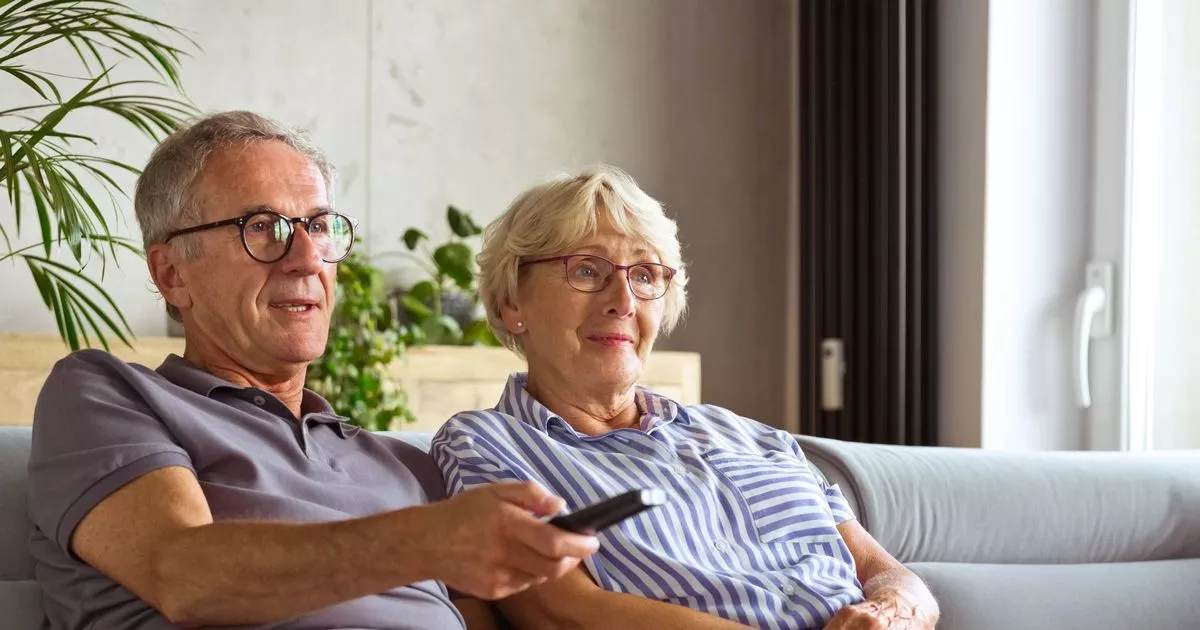A TV Licence costs £174.50 a year, but some people can get them for free – here’s everything you need to know The current cost of a TV Licence stands at £174.50 annually(Image: izusek via Getty Images)
The current cost of a TV Licence stands at £174.50 annually(Image: izusek via Getty Images)
State pensioners throughout the UK have the opportunity to reduce their TV Licence fee to £0 in just 16 minutes, provided they meet certain requirements.
The current cost of a TV Licence stands at £174.50 annually, or £58.50 for black and white television sets, following a government-imposed increase of £5 in April this year, adding an additional 42p per month to household expenses. A TV Licence is necessary for watching or recording programmes on any device, across all channels or services as they’re broadcast, including on-demand BBC programmes on iPlayer.
However, state pensioners aged 75 and over who are on a low income can reduce their TV Licence fee to nothing by simply claiming one specific government benefit.
Pension Credit offers additional funds to those over State Pension age with a low income, averaging around £4,300 per annum. For eligible individuals, it boosts your weekly income to £227.10 if you’re single, or your joint weekly income to £346.60 if you have a partner.
Moreover, receiving this benefit opens up access to a range of other financial assistance – including a free TV Licence, reports the Express.
Pension Credit serves as a gateway to a host of other financial support, granting eligible pensioners access to benefits such as Housing Benefit, a Winter Fuel Payment, a Council Tax discount, help with NHS dental treatment, glasses and transport costs, and a free TV Licence for those aged 75 and over.
The Department for Work and Pensions (DWP) has stated that it takes an average of just 16 minutes to apply, potentially unlocking thousands of pounds in additional financial aid.
Those already receiving Pension Credit can apply for a complimentary TV Licence upon turning 74, though they must continue to cover the cost until the end of the month preceding their 75th birthday. Following this, their free licence will take effect.
However, for those who do not meet the eligibility requirements for Pension Credit, there are alternative methods to decrease your TV Licence fee, or even avoid it entirely.
Residents of care homes, supported housing or sheltered accommodation may be eligible for a reduced fee TV Licence. Furthermore, if you’re blind (severely sight impaired) and can provide the necessary proof, you can apply for a 50% discount on your TV Licence.
If neither of these conditions apply, then the full rate for a TV Licence must be paid. Even if you don’t meet the eligibility criteria for Pension Credit, or qualify for a reduced fee TV Licence, there remain a few options to save on costs.
TV Licences are issued per household, not per individual. Thus, if you reside in a shared house, it’s not necessary for each person to possess one; instead, the cost of a single licence can be split amongst all occupants.
This is applicable if you watch television in a communal area or have a joint tenancy agreement. However, if your tenancy agreements are separate and you watch TV in your private room, you’ll need to cover your own licence fee.
There’s no requirement for a TV Licence to access streaming platforms such as Netflix and Disney Plus, on-demand services like All 4 and Amazon Prime Video, online videos on platforms like YouTube, or to watch DVDs and Blu-rays. Therefore, if you’re content with these options and refrain from watching or recording any live TV or BBC iPlayer, you could save yourself £174.50.
Be aware though, if you do watch or record live TV without a TV Licence, you could face a fine of up to £1,000.
We have a dedicated newsletter for ChronicleLive’s money-saving and cost of living stories. It’s free and you can sign up to receive it here. It will keep you up to date with all the latest money news and budgeting tips as well as stories on the cost of living crisis in our region.

